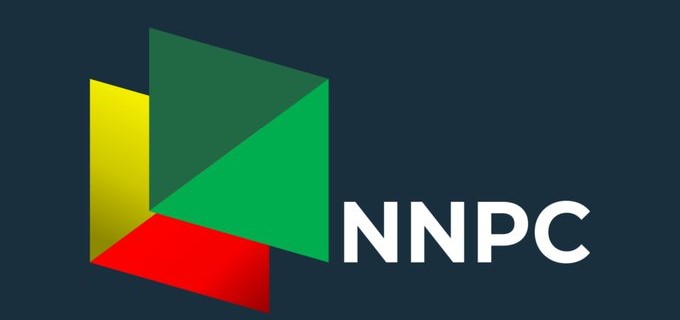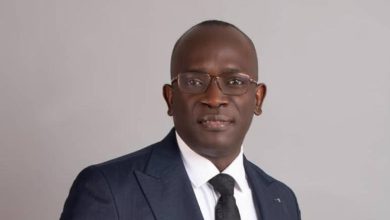Fuel Subsidy Debt: FG, NNPCL Strategize on N7.7tn Payment

As of September 2024, when the deregulation of the downstream oil industry was completely implemented, the Federal Government’s debt to the Nigerian National Petroleum Company Limited increased to N7.74 trillion as an exchange rate difference (subsidy) for the purchase of Premium Motor Spirit (petrol).
Despite purchasing the goods at a higher price between June 2023 and September 2024, the amount covers the expense of maintaining a certain price range in the retail market.
The national oil company revealed this to the Federation Account Allocation Committee during its February meeting in Abuja.
The government is devising plans to pay off the N7.74 trillion gasoline subsidy debt in 210 days, according to the FAAC report.
A report revealed in August that the NNPCL had asked the government to return N4.71 trillion in unpaid arrears related to the import of fuel.
“Exchange rate differential on PMS and other joint venture taxes” was the claim’s original title, and it applied to goods the corporation imported between August 2023 and June 2024.
Exchange rate differentials are the profits that banks or other government organisations receive from the difference in two currencies’ values over time as a result of foreign exchange’s buying and selling prices.
The exchange rate differential is the difference between two rates; for instance, if you exchange $1 for N1,600 today and $1 for N1,500 tomorrow.
By paying the difference between the anticipated rate and the actual costs paid by the NNPCL for bringing petroleum products into the nation, the government subsidised fuel imports.
The national oil company is currently attempting to recoup this cost difference from the government, which should typically be represented in the product’s retail price and paid for by end users.
A review of the FAAC document showed the Nigerian Autonomous Foreign Exchange Market rate was used to determine the exchange rate disparity for the July–September 2024 timeframe.
“Thus, the actual differentials may change in line with the prevailing forex (foreign exchange) rate at the time of import settlements.”
The extra claim resulting from the actualisation of an expected portion of the 2017 to May 2023 PMS under-recovery is the amount carried forward.
According to a breakdown, the exchange rate disparity recovered between November 2023 and September 2024 was N2.756 trillion, while the total amount of the exchange rate discrepancy outstanding was N10.499 trillion. As a result, the total sum owed was lowered to N7.74 trillion.
Additionally, the document said that the weighted average of USD purchases as of February 7, 2025, was used. It also said that the payment is due in 210 days.
A month-by-month breakdown indicated that the debt with an outstanding balance of N1.29tn increased to N1.402tn in June 2023, N1.48tn in July 2023, N1.535tn in August, N1.59tn in September, and N1.81tn in October 2023.
READ ALSO: Power Shift in Lagos: Speaker Meranda Resigns as Obasa Reclaims Seat
By November, these claims increased by N662.9bn to N2.378tn, and by another N616.38bn to N2.94tn in December 2023.
The document further indicated that the figure increased to N3.57tn in January 2024, N3.96tn in February, N4.68tn in March, N5.81tn in April, N6.47tn in May, and N6.97tn as of June 2024.
In July 2024, it increased to N7.46tn, N7.66tn in August, and N7.74tn in September 2024. The amount represents 14.07 per cent of the N54.99tn 2025 national budget.
On May 29, 2023, during his inauguration, President Bola Tinubu publicly declared that “subsidy is gone,” signalling the end of barriers that had been restricting the nation’s economic growth.
The International Monetary Fund, the World Bank, and other authoritative figures had argued that the government quietly reintroduced fuel subsidies.
In June, a proposed economic stabilisation plan document stated that the government planned to spend about N5.4tn on fuel subsidies.
Energy experts questioned why, when NNPCL sold oil in foreign currency on behalf of the government, the national oil company was requesting that the government pay its differentials.
Like other oil firms, the NNPCL was expected to pay royalties to the government, according to Wumi Iledare.
“If you look at the taxes paid by the international oil companies, they are tax oil which NNPCL sells on behalf of the government and gives the government the dollar. So, it is very difficult for me to understand why the Federal Government has to return any money to NNPCL.
“Unless NNPCL is saying that it is the one funding the government in dollar equivalent, and since the government is changing the exchange rate to the tune of N1,500, the government cannot keep the windfall profit because the government now has more than when the exchange rate was N700,” Iledare stated.
The scholar added, “It is very difficult for me to comprehend the rationale because the government is the owner of the equity, the government owns the tax oil, and the government is the owner of the royalty oil that the NNPCL is selling on its behalf.
“If the argument is about what they call under-recovery, that means NNPCL spent dollars on behalf of the government to import fuel, and the government is giving them the under-recovery in naira, which I am not sure of. It is very complicated to understand. By the way, the Federal Government is not necessarily the owner of NNPCL. It is the federation that is the owner of the NNPCL.”
FAAC committee members, however, have bemoaned the NNPCL’s inconsistent income reporting. Tunde Aregbesola, the Ogun State Accountant-General, filed the complaint because revenue was lower than what was remitted in November.
READ MORE: Coca-cola system unveils packaging collection hub in Lagos to tackle plastic waste
The minute read, “AG Ogun observed that there was a significant decline in revenue compared to November 2024 in-flow, and upon reviewing the financial records, particularly note 7, it was noted that the receivables from NNPCL amounted to approximately N10.8tn.
“However, there are concerns about the accuracy of the figures as reports suggest that NNPCL may still be reconciling the figures.”
He further stated that if the receivables were confirmed and added, they would represent a substantial part of the over N10tn, which could drastically affect the overall financial outlook.
Oluwatoyin Madein, the Chairman, said that the Alignment Committee was working on a reconciliation and that the issue was between the NNPCL and NUPRC.
She underlined how crucial it is to record any pertinent concerns during the reconciliation process to make sure they are appropriately handled.
She also mentioned that a member asked how long the Stakeholders Alignment Committee’s reconciliation process would take and if a deadline could be established for its completion.





